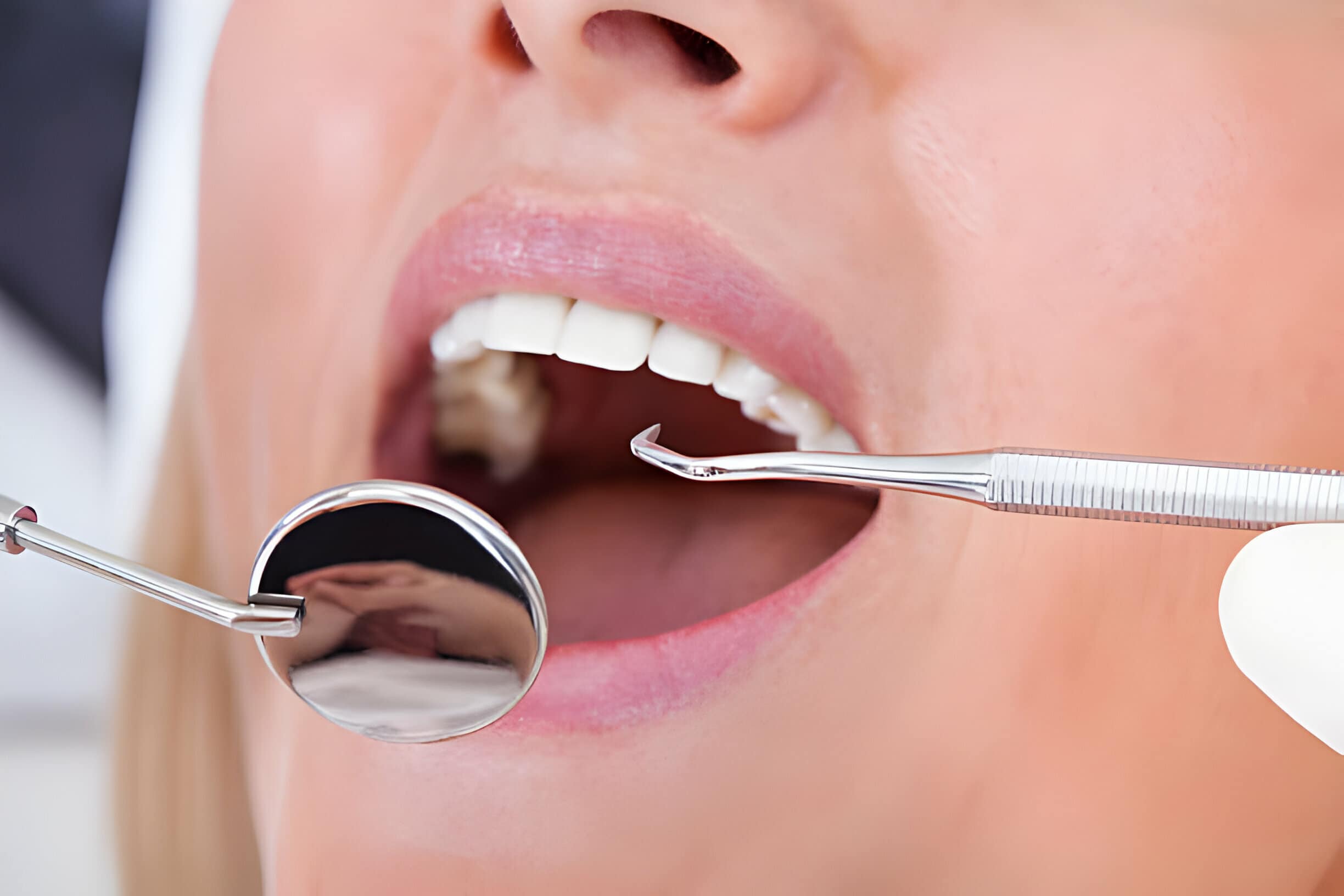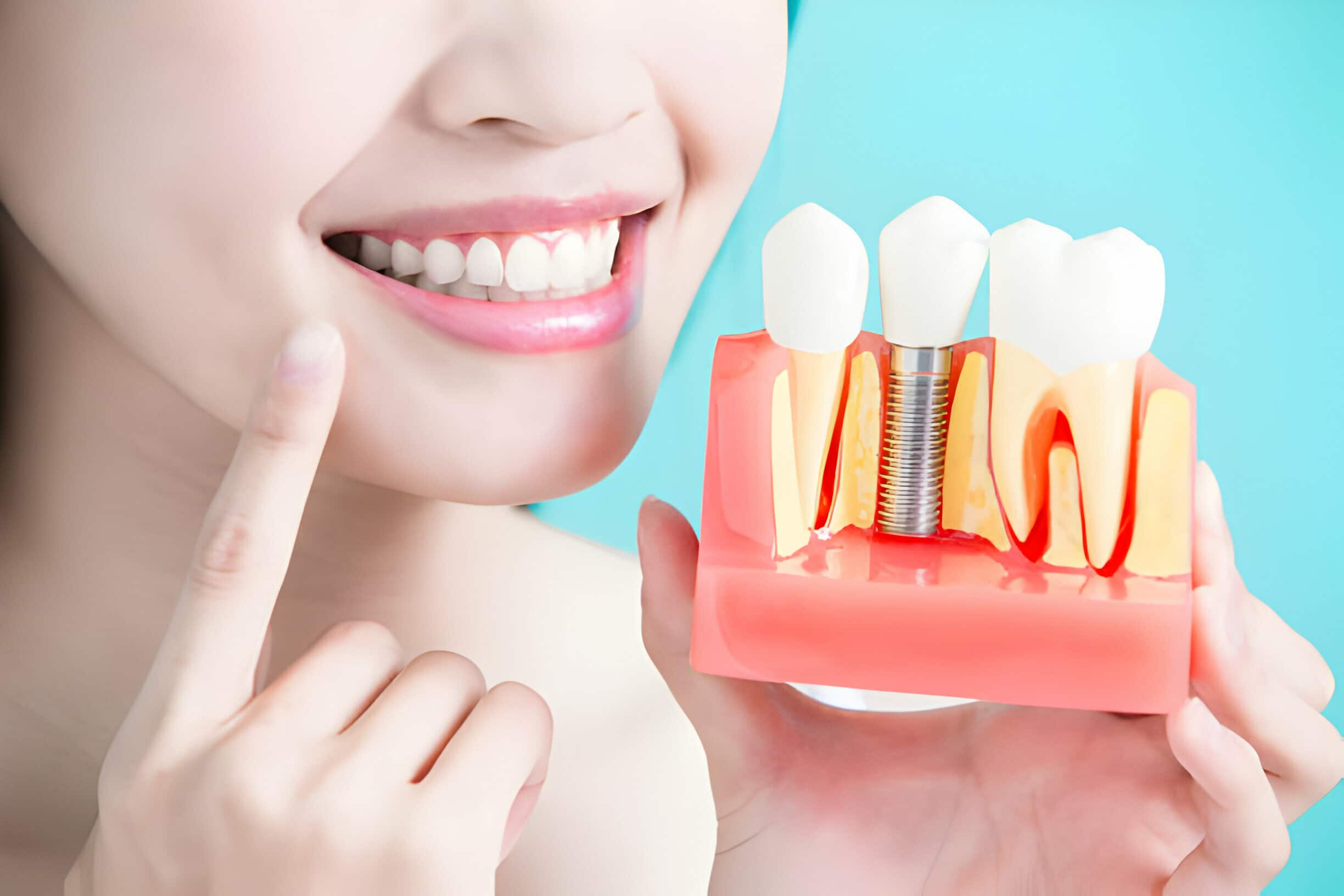Summary:
Are you worried that you may soon lose your teeth to damage and decay?
Or, has the dental trauma and certain medications damaged the foundation of your teeth?
If so, you are not the only one. Around 90% of adults suffer from chips, cracks, cavities, and decay.

Everyone loves a pleasant smile and a healthy set of teeth. Our dentists can make that possible with restorative dentistry. However, there’s a lot of confusion around this subject because most people have limited knowledge about restorative dentistry.
Keeping that in mind, we shall discuss topics like:
- What Is Restorative Dentistry All About?
- Understanding The Common Restorative Dentistry Options
- Discovering The Advantages Of Restorative Dentistry
- Limitations Of Restorative Dentistry That You Should Know
Continue reading to explore the different restorative dentistry options in the following sections.
What Is Restorative Dentistry All About?
As the name suggests, restorative dentistry is a branch that repairs your teeth to prevent further damage. It encompasses a range of procedures to repair damaged or missing teeth to promote oral health and improve appearance.
Restorative dentistry in Dallas, GA addresses immediate dental concerns using modern tools and advanced techniques. Professional dentists strive to preserve and improve the natural structure of your teeth for long-term oral well-being.
Understanding the Common Restorative Dentistry Options
Restorative dentistry in Dallas is a revolutionary treatment that can repair and enhance oral health, functionality, and aesthetics.
Interestingly, however, there’s not one but several therapeutic procedures of restorative dentistry, aimed at addressing unique oral issues.
Here are some common options to help you decide what works best for you:
Dental Fillings
Dental fillings are a cornerstone of tooth restoration and one of the most common restorative treatments. They are made of various materials, such as silver amalgam, composite resin, gold, or ceramic.
Dentists recommend fillings to address cavities and tooth decay. This helps restore the tooth’s structure and prevent further deterioration of your oral health.
Dental Crowns
If you have extensively damaged or weakened teeth, your dentist in Dallas, GA may recommend dental crowns. Crowns or caps are a great option for fixing your smile. These appliances mimic the shape and function of a natural tooth.
Dentists place these caps over the damaged tooth, providing strength, protection, and aesthetic improvement. It’s often the go-to solution for post-root canal therapy or addressing significant structural issues.

Dental Bridges
Missing teeth affect appearance, dental function, and overall oral health. If you’ve lost or failed to replace a tooth, your jaw might push other bones to cover the gap. It could further result in jaw misalignment under severe instances.
Dental bridges offer a non-removable solution to replace one or more missing teeth. These appliances consist of artificial teeth supported by adjacent natural teeth or implants. They can seamlessly restore both functionality and aesthetics.
Dentures
Dentures offer a removable yet effective solution for those missing multiple teeth or entire dental arches. They are crafted using modern tools to provide comfort, functionality, and a natural-looking smile to individuals with a few missing teeth.
Partial dentures are designed to replace missing sections of teeth. Conversely, complete dentures are more convenient for individuals with no teeth in their cavities. They restore full dental arches.
Root Canal Therapy
Root canal therapy becomes necessary when a tooth’s inner pulp becomes infected or inflamed due to decay or trauma. Many dentists consider it the last option to save teeth from extraction.
The root canal procedure involves:
- Removing the infected pulp
- Thoroughly cleaning and disinfecting the root canal
- Sealing it to prevent reinfection
The therapy can alleviate your pain and preserve your natural tooth structure.
Inlays And Onlays
Inlays and onlays offer an excellent alternative to individuals whose teeth suffer moderate damage or decay. They are a great alternative for users who don’t want to get a full crown.
Inlays fit within the cusps of a tooth, while onlays extend to cover one or more cusps. These custom-made restorations provide durability and aesthetic appeal, blending seamlessly with natural teeth.
Discovering The Advantages Of Restorative Dentistry
You must wonder why restorative dentistry is preferred over other dental treatment options. Restorative dentistry serves as a cornerstone in maintaining oral health and revitalizing smiles.
Here’s why restorative dentistry is invaluable for individuals with damaged teeth:
Restorative Dentistry Can Enhance Your Oral Well-Being
Restorative dentistry can repair tooth damage, minimize decay, and foster oral wellness. The method involves different procedures that help minimize the risks associated with dental ailments.
It Can Restore Your Oral Functions
Restorative dentistry addresses issues like damaged or absent teeth, making it a great option for restoring chewing and speaking abilities. The treatment also allows individuals to experience renewed oral functions.
It Can Enhance Your Aesthetic Appeal
Restorative dental treatments seamlessly blend with natural teeth using advanced tools and materials, thereby ensuring a confident and aesthetically pleasing smile.

It Can Prevent Your Dental Issues From Escalating
Timely intervention via restorative dentistry checkups saves you from getting into financial burdens. Regular checkups help you eliminate the hassles of the progression of minor issues into major oral concerns.
It Preserves Your Facial Symmetry
Restorative dentistry helps maintain jawbone density and facial contours by preventing bone loss caused by missing teeth. Different methods of treatment help preserve your youthful appearance.
Limitations Of Restorative Dentistry That You Should Know
Restorative dentistry is a beacon of hope for many individuals seeking to restore their oral health and confidence. However, like any field, it has its boundaries and limitations, which are crucial for patients to understand.
-
Intervention May Lead To Unintentional Damage
While the primary aim of restorative dentistry is to preserve natural tooth structure whenever possible, there are instances where intervention leads to unavoidable damage. This can sometimes weaken the tooth’s integrity, necessitating additional procedures later.
-
Sometimes They Are Temporary
Though they are designed to last, most restorations are not immune to time. Factors like wear, degradation, and unforeseen failures mean that they may need periodic replacement. Patient habits and maintenance play a significant role in determining their longevity.
-
Risks Of Allergic Reactions
While modern materials are generally safe for most patients, allergic reactions or sensitivities are always risky. Dentists must navigate patients’ medical histories and potential sensitivities when selecting materials for therapeutic work.
-
Requires High Maintenance
Long-term success with restorations depends on diligent maintenance. Patients must adhere to prescribed oral hygiene practices and attend regular check-ups to ensure the durability and effectiveness of their restorations.
Takeaway
- Most adults face dental problems such as chips, cracks, cavities, and decay, which require restorative dentistry.
- Restorative dentistry is a specialized branch dedicated to repairing damaged or missing teeth to improve oral health and appearance.
- Common Restorative Dentistry Options include dental fillings, dental crowns, dental bridges, dentures, root canal therapy, and inlays and onlays.
- Restorative Dentistry enhances oral well-being, restores oral functions, improves aesthetic appeal, prevents minor issues from escalating, and preserves facial symmetry.
- Individuals need to be informed about the various restorative dentistry options available to make well-informed decisions about their dental care.
- Get the most out of your renewed smile with our experts at Seven Hills Dentist. contact us today!
